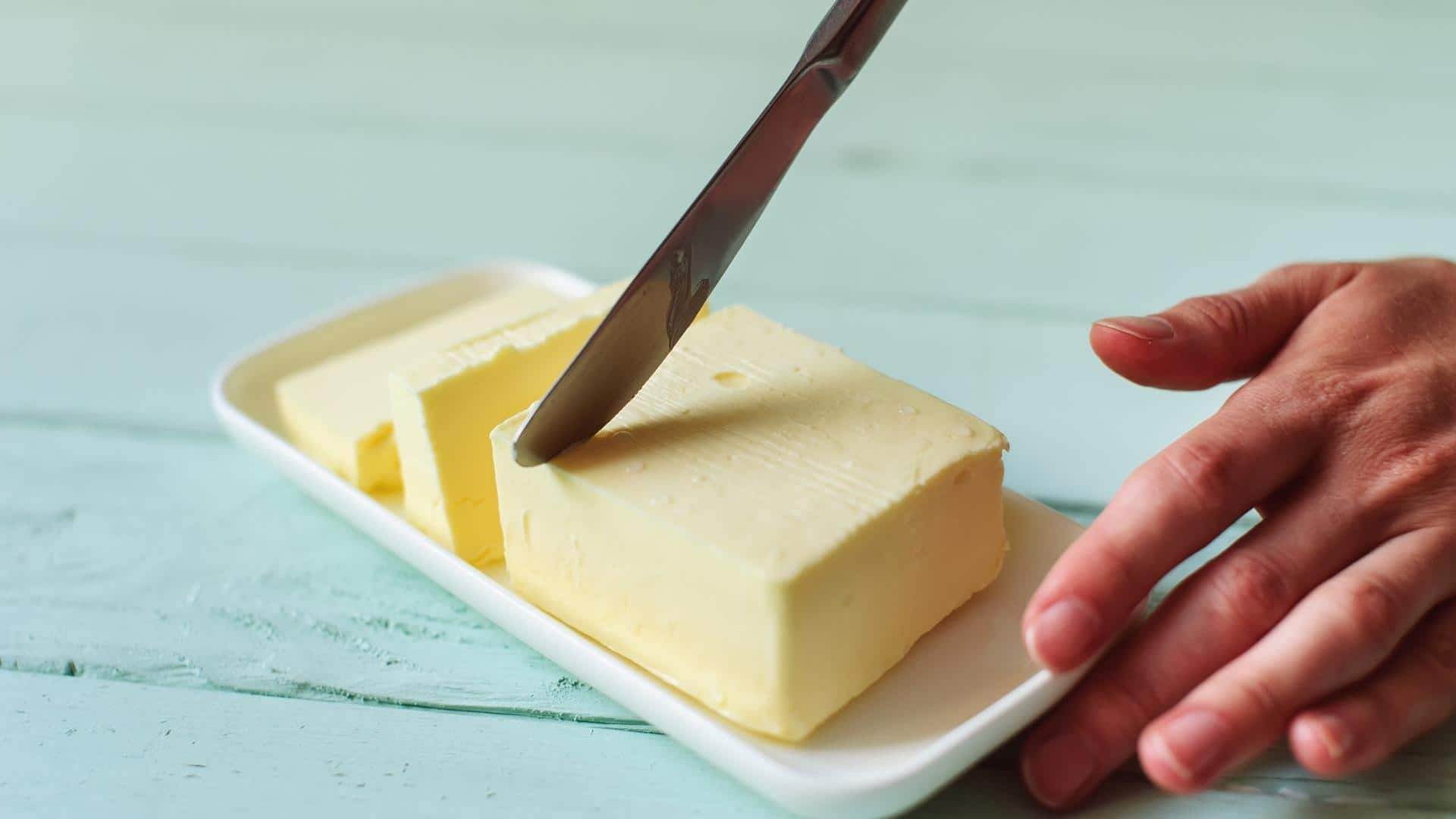
US startup produces 'butter' from carbon dioxide, hydrogen: Here's how
What's the story
Bill Gates-backed startup Savor has manufactured a spread similar to butter using only carbon dioxide (CO2) and hydrogen. The company says its thermochemical process generates an animal-like fat that negates the environmental impact typically associated with dairy and plant-based alternatives. Savor is also in the process of developing other products such as milk, ice cream, cheese, meat, and tropical oils.
Process explanation
Savor's novel approach to fat production
Savor's process is rooted in the understanding that all fats consist of varying chains of carbon and hydrogen atoms. As Gates explained in a blog post, "They set out to make those same carbon and hydrogen chains - without involving animals or plants." The procedure involves extracting CO2 from the air and hydrogen from water, heating them, and then oxidizing them to initiate the separation of fatty acids which subsequently formulate fat.
Environmental impact
Gates champions lab-made fats amid environmental concerns
Gates posits that lab-made fats and oils have the potential to significantly reduce our carbon footprint. This assertion comes at a time when livestock are responsible for 14.5% of all global greenhouse gas emissions, according to the United Nations Food and Agriculture Organization (FAO). "The idea of switching to lab-made fats and oils may seem strange at first," Gates wrote, "but their potential to significantly reduce our carbon footprint is immense."
Market acceptance
Discussing challenges and potential of Savor's products
Despite the potential environmental benefits, Gates recognizes that persuading people to substitute traditional dairy products with these 'experimental' foods remains a challenge. However, he is hopeful that his support will contribute to reducing costs, making these products affordable for everyone. "The big challenge is to drive down the price so that products like Savor's become affordable to the masses - either the same cost as animal fats or less," Gates wrote.
Sustainable production
Dairy substitute is environmentally friendly and tasty
Gates underscored that Savor's process doesn't emit any greenhouse gases, meaning their butter is better for the environment. "The process doesn't release any greenhouse gases, and it uses no farmland and less than a thousandth of the water that traditional agriculture does," he pointed out. He also affirmed that the taste is comparable to traditional products: "And most important, it tastes really good - like the real thing, because chemically it is."